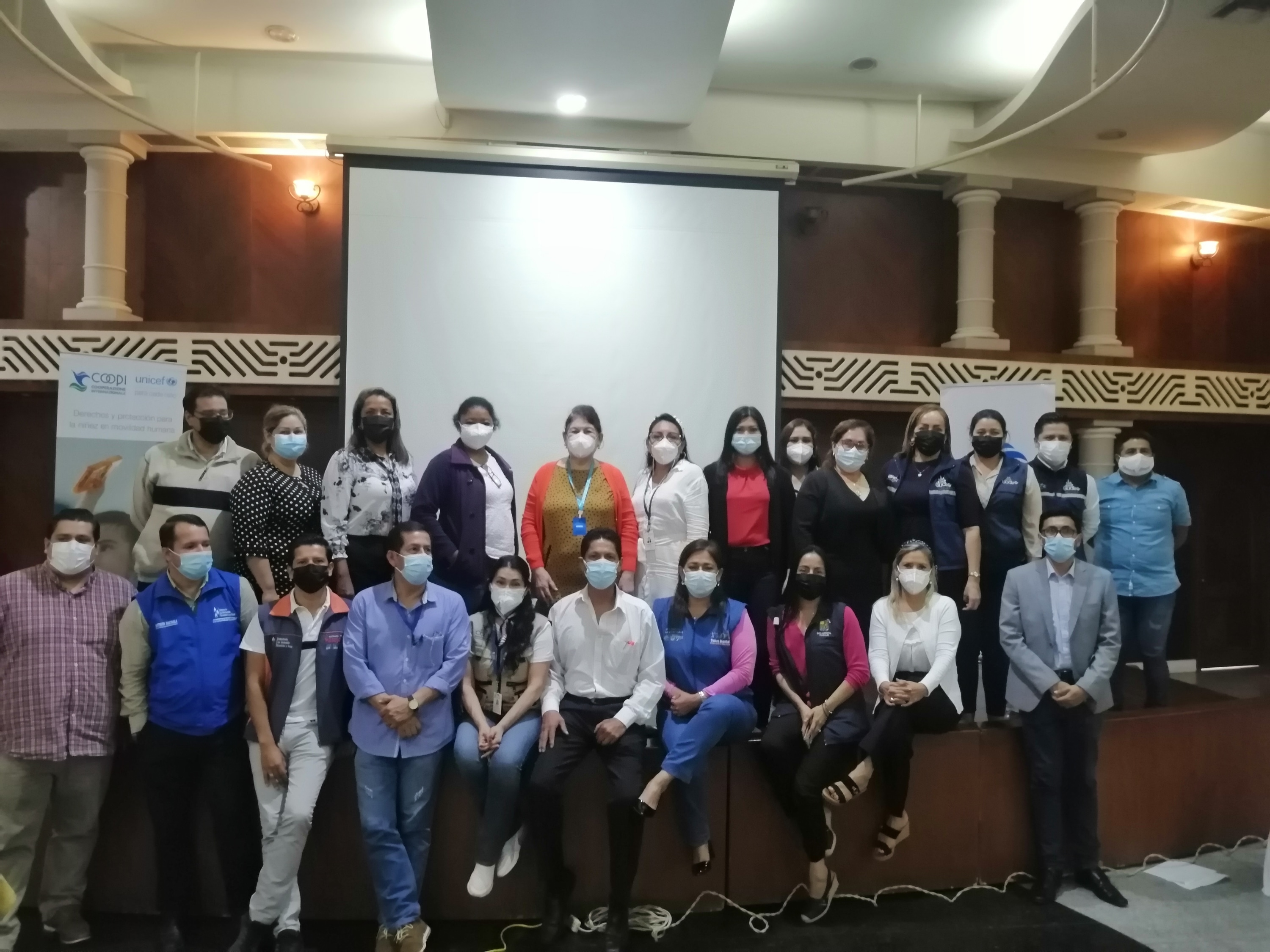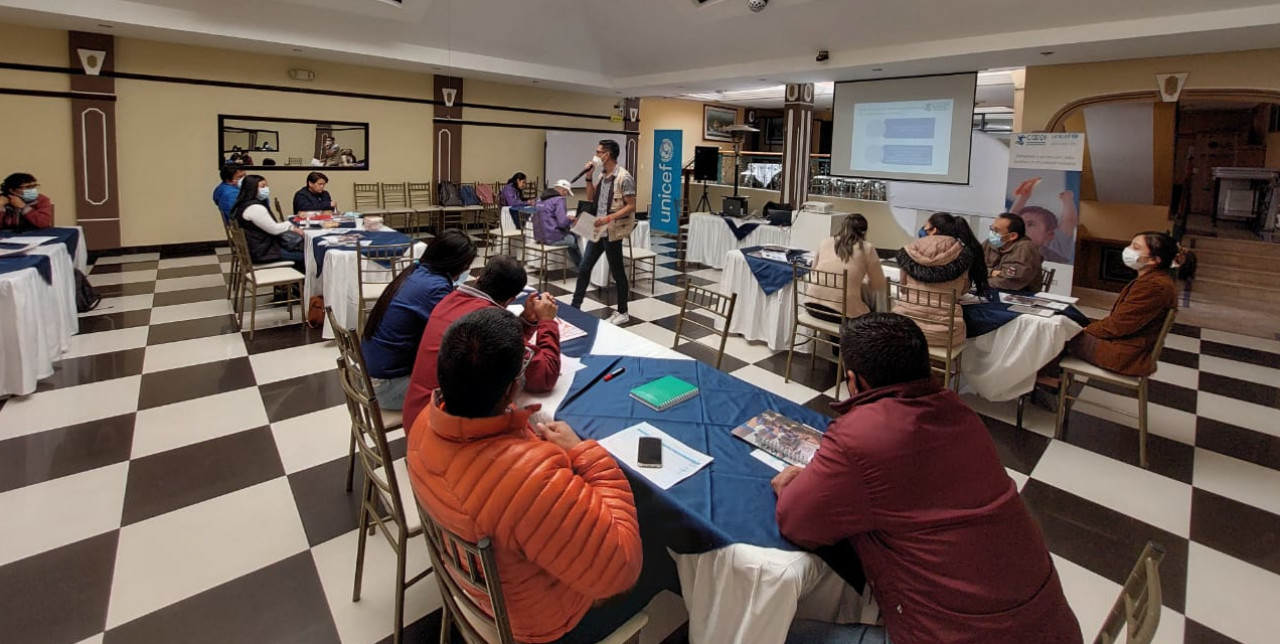08-09-2021 | di COOPI
Ecuador. COOPI and UNICEF train Local officials on rights-based approach
COOPI - Cooperazione Internazionale and its partner UNICEF continue their work in the provinces of Guayas, Manabí, El Oro, Carchi, Sucumbíos and Imbabura in Ecuador, providing training workshops on Urban Planning with a human rights approach. The aim of these spaces is to strengthen the expertise of Local Rights Protection Systems and Cantonal Councils officials in the country.
In this regard, the training process aspire to the participatory construction of action plans that promote the implementation of human rights approaches in the public policies of the cantons and provinces. Inter-institutional coordination is essential to this work, which encourages inclusion of priority groups in the policies, strategies and actions of the Cantonal Councils.
Between August and September, workshops were held in Manabí, in the cantons of Chone and Portoviejo, in Carchi, in the canton of Montufar, and finally in the province of El Oro, in the cantons of Santa Rosa and Machala. Throughout August, they will be extended to all 6 provinces that are part of the project, with the aim of reaching at least 300 officials of the country's Local Rights Protection Systems and Cantonal Councils.

These workshops are developed within the framework of the project "Improving conditions of access to protection and security for Venezuelan children and adolescents and their families in transit and/or residing in Ecuador Phase II", implemented with UNICEF, through the support and financing of the Directorate-General for European Civil Protection and Humanitarian Aid Operations (ECHO). The workshops try to create a space for inter-institutional subdivision and citizen participation in the construction of more equitable cities in Ecuador.
Starting from 1967, COOPI operates in Ecuador and, as of this year, is engaged in several humanitarian assistance programmes, which bring attention to protection, habitability, livelihoods, hygiene, water and sanitation (WASH) and employability.




 Ecuador
Ecuador